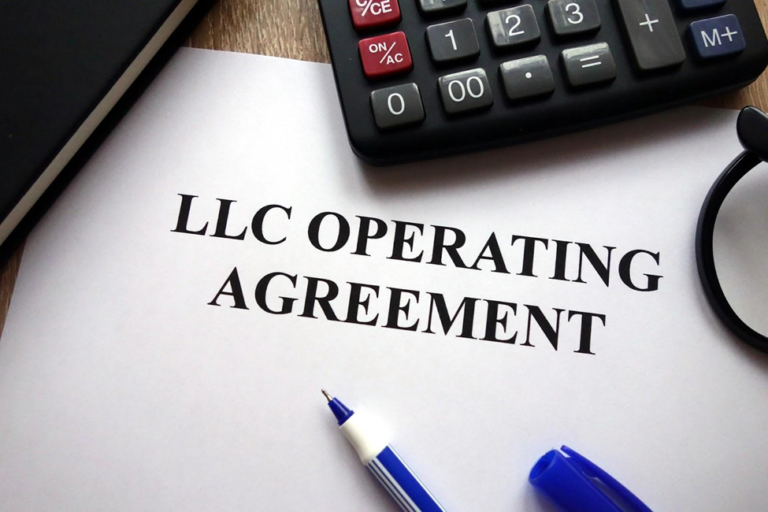Buyout Provisions in Bylaws and Operating Agreements: Legal Foundations, Practical Considerations, and Key Case Law
- Evan Howard
- May 16, 2025
- 3 min read
Buyout provisions are critical clauses in LLC operating agreements and corporate bylaws, governing how ownership interests are transferred when a member or shareholder departs, passes away, or is otherwise separated from the business. These provisions are designed to ensure business continuity, protect remaining owners from unwanted third-party involvement, and provide a clear, enforceable mechanism for valuing and transferring ownership interests.
A typical buyout provision specifies the triggering events that require or permit a buyout, such as voluntary withdrawal, death, disability, or expulsion for cause. It also outlines who has the right or obligation to purchase the departing owner’s interest, often the company itself or the remaining owners, and the method for valuing that interest, which may be based on book value, fair market value, or an independent appraisal. Payment terms, such as lump sum versus installment payments, and funding mechanisms (like life insurance) are also commonly addressed.
The importance of buyout provisions is underscored by the fact that, in the absence of a clear agreement, state default rules may apply, which can lead to unintended consequences such as forced dissolution or protracted litigation. For example, many states' LLC statutes provide default rules for member withdrawal and buyouts, but these can be overridden by a well-drafted operating agreement. Courts will generally enforce the terms of a buyout provision as written, provided they are clear and do not violate public policy.

Caselaw on Buyout Provisions
Ehlinger v. Hauser, 785 N.W.2d 328 (Wis. 2010)
In Ehlinger v. Hauser, the Wisconsin Supreme Court addressed a buyout provision that required a departing shareholder to sell their shares at "book value" but failed to define the term or the process for determining it. The parties disagreed on the calculation, and the court ultimately found the provision unenforceable due to its vagueness, holding that a contract must include all essential terms to be actionable. The absence of a clear valuation method left the agreement too ambiguous to enforce, resulting in judicial dissolution of the business. Ehlinger v. Hauser, 785 N.W.2d 328, 336 (Wis. 2010).
Connelly v. United States, 601 U.S. ___ (2024)
In Connelly v. United States, the U.S. Supreme Court addressed the estate tax implications of life insurance-funded buy-sell agreements. Two brothers, sole shareholders of a corporation, had a buy-sell agreement funded by life insurance. When one brother died, the company used life insurance proceeds to redeem his shares. The estate excluded the insurance proceeds from the company’s valuation for estate tax purposes, but the IRS argued they should be included. The Supreme Court unanimously held that life insurance proceeds used to fund a redemption must be included in the company’s value for estate tax purposes, and the company’s contractual obligation to redeem the stock is not a deductible liability that reduces the corporation’s value. This decision has major implications for structuring buy-sell agreements, as it may increase the estate tax burden on the deceased shareholder’s estate Connelly v. United States, 601 U.S. ___ (2024).
Operating Agreement Outweighs Statutory Rights
A notable New York case (discussed in Chiu) illustrates how an LLC operating agreement can override state statutory default buyout rights. The minority member sought a statutory fair-value buyout upon withdrawal, but the court held that the operating agreement’s mandatory rights of first refusal and buyout procedures displaced the statutory default rule. The court found the agreement’s procedures “unambiguous on its face” and enforceable, emphasizing that the operating agreement governs unless it is silent or ambiguous Chiu v Chiu, 2015 NY Slip Op 01427 [2d Dept Feb. 18, 2015].
Statutory Context
North Carolina LLC Act (N.C. Gen. Stat. § 57D): Allows operating agreements to set their own buyout and transfer rules, overriding statutory defaults.
Illinois Business Corporation Act (805 ILCS 5/12.56(a)(3)): Permits court-ordered buyouts in cases of shareholder oppression or deadlock.
Illinois LLC Act (805 ILCS 180/35-45(6)): Allows judicial dissociation and buyout of a member when it is no longer practicable to do business together.
Drafting and Enforcement Lessons
Clarity and Detail: Courts will not enforce vague or incomplete buyout provisions, especially regarding valuation methods or triggering events.
Override of Statutory Defaults: A clear operating agreement or bylaw provision will generally override state default rules, giving members and shareholders control over their exit and valuation terms.
Tax Implications: The Connelly decision highlights the need to consider estate and income tax consequences when structuring life insurance-funded buyouts.
Buyout provisions are essential for orderly business transitions and dispute avoidance. U.S. courts consistently enforce clear, detailed agreements, while ambiguous or incomplete provisions risk being struck down or leading to costly litigation. Recent Supreme Court precedent (Connelly) and state law reinforce the need for careful drafting and regular review of these provisions to ensure they achieve their intended legal and financial outcomes.




Comments